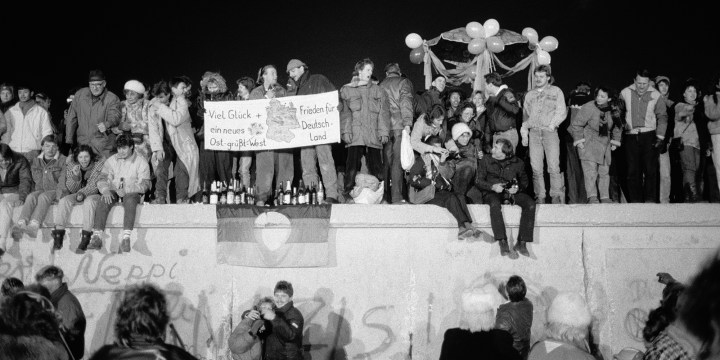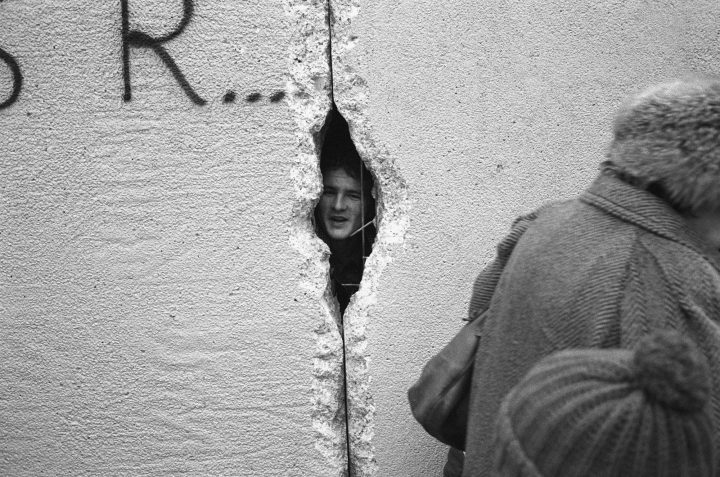OP-ED
9 November: A date that has brought both horror and hope for Germany

So much history in one day. For Germans, 9 November is a day to remember the great gift of democracy. A day to remind us forever of the horrors of Nazi terror that led to the Holocaust. A day to relive the joys of freedom and unity.
Can one day change the fate of a country? Can one day determine the course of a nation? Can one day bring out the best – or the worst – in a people?
The answer to these questions surely must be “yes”. We all know pivotal dates in the history of different countries: 27 April 1994 in the history of South Africa, when the first free elections took place; 4 July 1776, Independence Day for the United States; 14 July 1789, the storming of the Bastille in France.
On these days, events took place that defined the destinies of nations for generations to come. Often, such days have become the national days of their countries.
In Germany, we celebrate our National Day on 3 October. On this day, in 1990, the two former states of East and West Germany became a united country after over 40 years of separation. But there is another date that captures the essence of German history, both in a positive and in a negative sense. It is 9 November.
On 9 November 1918, after World War 1, the German emperor abdicated and the first German republic was proclaimed. Two days later, the armistice that ended the war was signed. After more than four years, the horrors of war had come to an end. It was a war that had also been fought on African soil. When it ended, German colonies in Africa were dismantled.
In Germany itself, the day marked the end of monarchy and the birth of democracy. After centuries of monarchic rule and several attempts of introducing a democratic system, the “November revolution” paved the way for the Weimar Republic. Democracy had won, even if only for a short time.
Sadly, this republic did not live long. It was followed by the darkest chapter of German history. In 1933, Adolf Hitler’s National Socialist Party seized power and introduced a rule of terror that would eventually lead to World War 2.
On the evening of 9 November 1938, the Nazi rulers organised an unprecedented wave of attacks on Jewish shops, enterprises, factories, and synagogues. It became known as the “Reichskristallnacht” – the Night of Broken Glass. More than 400 German Jewish citizens were killed. Synagogues all over Germany were burned to the ground.

A young man peers into East Berlin through a hole in the Berlin Wall at the effective end of the city’s partition, 31st December 1989. (Photo: Steve Eason / Hulton Archive / Getty Images)
It led the way to the Holocaust, the mass murder of over six million Jews in Europe, organised and perpetrated by Nazi Germany. It is a horror we must never forget. A crime beyond words that must be a warning forever. To make sure that such an abomination of civilisation never happens again.
After World War 2, Germany was divided. The Federal Republic in the west became the thriving democracy we know today. The German Democratic Republic in the east became a Soviet satellite state. To prevent its people from leaving the country, the regime in East Berlin constructed a wall that separated the city and the entire country.
During the decades that followed, almost 200 people died, shot when they tried to cross this wall and flee to the West. In 1989, the winds of change came all over Central and Eastern Europe. The people of East Germany took to the streets and demanded their freedom.
Their peaceful revolution culminated on 9 November 1989. On that day, the Berlin Wall finally came down. Wonderful pictures of people dancing on the wall were broadcast around the world. Less than a year later, the reunification of Germany took place. Finally, what belonged together had grown together again, as Willy Brandt, the former German chancellor, put it. It was a triumph of freedom.
So much history in one day.
For Germans, it is a day to remember the great gift of democracy. A day to remind us forever of the horrors of Nazi terror that led to the Holocaust. A day to relive the joys of freedom and unity.
It is a very special day for me personally as well. I am from East Germany. When the wall came down, the world was suddenly open to me. Today, I am an ambassador of the united Germany. Thus, 9 November reminds me of what unites us and what makes us strong. It reminds me of our common humanity and our shared hopes and aspirations – for unity, justice and freedom. DM
Andreas Peschke is the German Ambassador to South Africa, Lesotho and Eswatini.

















 Become an Insider
Become an Insider
Comments - Please login in order to comment.